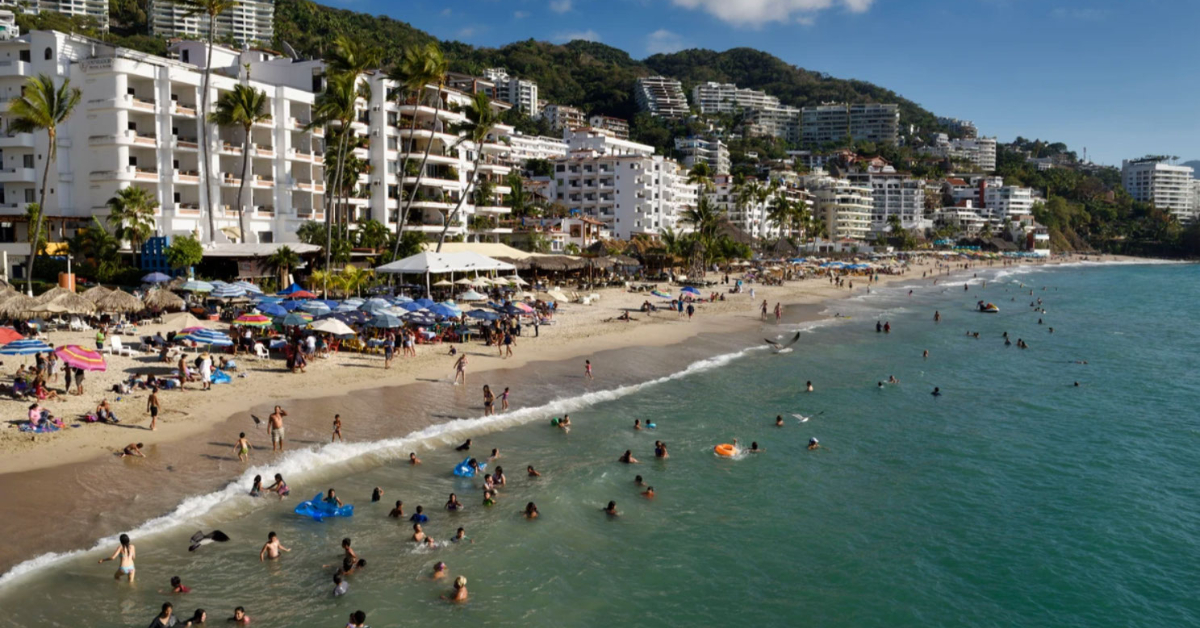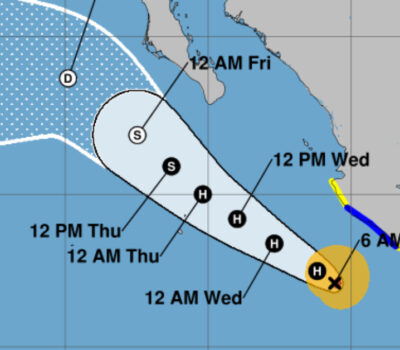Puerto Vallarta, Mexico—The FBI has seen a rise in scams targeting timeshare owners. In these scams, criminals con these part-time property owners into shelling out hefty sums of cash, all under false pretenses related to their timeshare properties.
Its primary choice of victim—older Americans—technically makes timeshare fraud a form of elder fraud, or crime that aims to make older Americans part with their money or cryptocurrency.
The FBI aggressively investigates such crimes to safeguard a particularly vulnerable population from scams, said Assistant Special Agent in Charge Paul Roberts, who leads FBI New York’s Complex Financial Crimes Branch.
“Timeshare fraudsters aim to suck their victims dry, with devastating consequences to victims’ financial futures, relationships, and physical and emotional health,” he said.
But, he noted, timeshare fraud also registers on the Bureau’s radar because its illicit proceeds are increasingly being used to fund violent cartels in Mexico. “As the cartels further cement their control of this space, it’s especially critical that the FBI take the lead in addressing this threat to American seniors,” Roberts said. He added that some scammers participate in these schemes because they fear becoming these cartels’ next victims.
Cartels have operated the most reported timeshare frauds involving properties in Mexico, Roberts said. The Jalisco New Generation Cartel (CJNG), the Gulf Cartel, and the Sinaloa Cartel have been running timeshare fraud schemes to help fund their illicit efforts for over 10 years. To date, the FBI believes that CJNG has been the predominant cartel engaging in timeshare frauds in Mexico, based on complaint reporting and financial tracing. However, independent call centers in Mexico are also likely engaging in this crime.
Timeshare fraud is an attractive endeavor to cartels because it’s cheaper and poses fewer logistical, labor, and oversight challenges than other revenue generators like drug and weapons trafficking, Roberts explained.
“Timeshare fraud has low overhead costs and minimal reinvestment, needing only a rental of small space, telecom setup, and English-speaking employees with access to resort databases,” Roberts said. “There is lower perceived risk of prosecution and extradition for timeshare fraud but easy cash flow that goes directly into the Mexican banking system and obfuscates funds to facilitate money laundering activities.”
These schemes—which disproportionately impact wealthy, older Americans who want to recoup some of the money they spent on their timeshares—leave victims emotionally and financially scarred.
But the FBI is using a combination of strategic partnerships to detect, investigate, and prevent these schemes.
“We partner with a variety of different agencies to investigate these cases, including the U.S. Drug Enforcement Agency (DEA) and the U.S. Treasury Department’s Office of Foreign Assets Control (OFAC),” Roberts said. “We also coordinate with state and local agencies to ensure we receive victim complaints filed at those levels as well. We are increasingly working with private sector partners in the financial industry to aid in the detection and prevention of these frauds.”
How Timeshare Fraud Scams Work
To conduct their scams, fraudsters do extensive research on their potential victims. Criminals create fake documents and impersonate individuals from trustworthy institutions to sell their storylines and scare victims into compliance.
“Throughout the process, the fraudsters use a combination of high-pressure sales tactics and cyber-enabled fraud strategies, such as mimicking legitimate entities’ email addresses and forging official documents, to convince victims that each phase of the scam is legitimate,” Roberts explained.
And, Roberts added, this isn’t a one-and-done type of scam. Fraudsters commonly use a mix of schemes to re-victimize timeshare owners over a multi-year period.
These types of scams typically play out in three phases, Roberts explained.
In phase one, he said, fraudsters contact a victim for the first time, by phone or email.
“In these initial communications with victims, the scammers often pretend to be U.S.- or Mexican-based third-party timeshare brokers or sales representatives in the timeshare, real estate, travel, or financial services industry,” Roberts said.
The scammers then urge the victim to take one of three actions:
- Exit their timeshare
- Rent out their timeshare property
- Invest in share certificates for their timeshare
The fraudsters then press victims to pay upfront fees or taxes to secure these deals, Roberts explained.
And, Roberts warned, the scammers do their homework. Before setting out to swindle victims, they tap sources within the timeshare industry to get information about timeshare properties and their owners. They also go to great lengths to sell targets on the authenticity of their schemes by drafting fraudulent contracts, offer letters, and bank account documentation.
“The scammers also leverage a robust network of fake company websites, business names and addresses, and registrations with government officials and trade groups to bolster their credibility,” Roberts said.
And, he added, the fraudsters are seemingly fluent English speakers who’ve memorized answers to frequently asked questions about their fake businesses to further sell the lie that their sales pitches are legitimate.
The scammers then repeatedly demand advanced fees until the victim either runs out of money or becomes savvy to their scheme.
In phase two of the scam, fraudsters reapproach victims after some time has passed. This time around, the scammers pose as law firm employees who want to help victims recoup the money they handed over to scammers in phase one.
“The scammers often claim the initial scammers have been either charged with fraud or held civilly liable in a U.S.- or Mexico-based lawsuit, and that the victims are owed restitution in the settlement,” Roberts explained. “However, in order to access that restitution money, the victims are told they must pay legal or court fees to the law firms. The scammers then defraud the victims of a series of advance fees related to the settlement, again using fake documents to bolster their credibility.”
Phase three of the scam involves government impersonation. Scammers pretend to be officials from OFAC, from the Mexican government’s Financial Intelligence Unit, or from other international entities, such as INTERPOL.
They then take one of two routes:
- Government impersonators claim that they’re contacting victims because they have access to criminal settlements and want to help them recoup their lost money; or
- Impersonators try to scare victims into giving up even more cash. They do this by telling victims that their initial payments to timeshare fraudsters were deemed suspicious.
The scammers then tell victims that the authorities determined their payments to timeshare fraudsters were “linked to money laundering or terrorist operations.” They then threaten to either subpoena victims or send them to prison if they don’t pay additional money to ensure their payments are released and their names are cleared.
Recognizing the Signs
Timeshare fraud goes unreported for two major reasons: Victims either don’t realize they’re being scammed, or they don’t realize that help is out there. That being said, the FBI and the Federal Trade Commission have recently seen an uptick in reports. In the last five years, Roberts said, upwards of 6,000 victims have reported more than $300 million in losses to the agencies.
The FBI hopes that increased media coverage of timeshare fraud will educate the public about the threat and inspire additional victims to come forward.
“There is nothing embarrassing about falling victim to a scam like this,” Roberts said. “The worst thing that people can do is suffer in silence out of shame or fear of judgment.”
In the meantime, you can protect yourself from becoming a victim of timeshare fraud by knowing the signs.
First, he said, people should neither ask you to pay upfront fees or taxes in advance, nor should they ask you to provide a power-of-attorney form. None of these are industry standard practices. All of them are red flags.
Next, he said, if you’re contacted by someone claiming to be a government official, that person shouldn’t:
- Reach out to you about a settlement
- Threaten to arrest or prosecute you if money isn’t paid
- Threaten to subpoena you to appear in court outside of the United States
- Claim to be working with the FBI and/or the U.S. Treasury Department’s Office of Foreign Assets Control to subpoena you.
Finally, you can take some simple proactive steps to guard against timeshare fraud scams:
- Don’t answer phone calls from unfamiliar numbers.
- If someone contacts you about your timeshare and requests cash upfront, stop communicating with them, and don’t pay up.
- Never sign, notarize, or send any power-of-attorney or legal documents via email.
The Potential Consequences of Timeshare Fraud
People who help orchestrate timeshare fraud scams can face extradition to the United States and potential prosecution on a slew of criminal charges, including:
- Wire fraud
- Bank fraud
- Conspiracy to commit wire fraud
- Conspiracy to commit bank fraud
- Money laundering
- Racketeer Influenced and Corrupt Organizations (RICO) Act charges
Puerto Vallarta, Mexico—The FBI has seen a rise in scams targeting timeshare owners. In these scams, criminals con these part-time property owners into shelling out hefty sums of cash, all under false pretenses related to their timeshare properties.
Its primary choice of victim—older Americans—technically makes timeshare fraud a form of elder fraud, or crime that aims to make older Americans part with their money or cryptocurrency.












